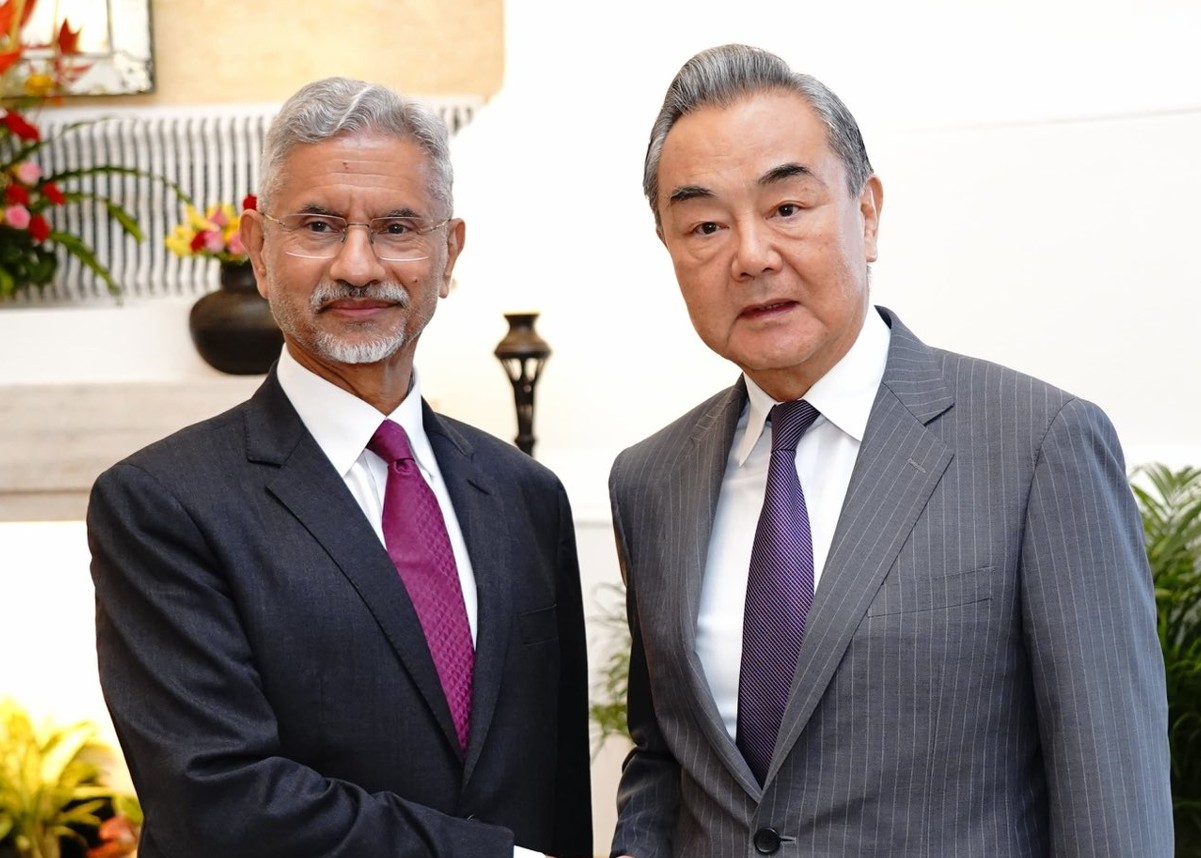In a significant diplomatic engagement, External Affairs Minister S. Jaishankar and Chinese Foreign Minister Wang Yi held wide-ranging talks in New Delhi on Tuesday. According to the Ministry of External Affairs (MEA), the discussions were described as “positive, constructive, and forward-looking,” covering bilateral, regional, and global issues of mutual concern.
Following the meeting, the MEA released a document outlining the outcomes. It noted, “Both sides underscored that the strategic guidance of the leaders of India and China plays an irreplaceable and crucial role in the development of India-China relations. They agreed that a stable, cooperative, and forward-looking bilateral relationship is in their mutual interest to fully realise their development potential. They further agreed that both sides should earnestly implement the important common understandings reached between the two leaders and promote the sustained, sound, and steady development of India-China relations.”
A major highlight of the meeting was mutual support for key diplomatic events. The Chinese side welcomed Prime Minister Narendra Modi’s upcoming visit to Tianjin for the Shanghai Cooperation Organisation (SCO) Summit, while India reaffirmed its “full support to the Chinese SCO Presidency” and expressed hope for “a successful SCO Summit with fruitful outcomes.”
Both sides also pledged to strengthen cooperation through major multilateral platforms. The document noted, “The Chinese side will support India in hosting the 2026 BRICS Summit. The Indian side will support China in hosting the 2027 BRICS Summit.”
To normalise and expand official engagement, both ministers agreed to resume various bilateral dialogue mechanisms and exchanges. This includes holding the Third Meeting of the India-China High-level Mechanism on People-to-People Exchanges in India in 2026.
Marking a diplomatic milestone, the MEA confirmed that both countries will continue supporting each other in organising events in 2025 to commemorate the 75th anniversary of the establishment of diplomatic ties.
Connectivity and people-to-people exchanges also featured prominently in the talks. Both sides agreed to resume direct flights between India and mainland China at the earliest, finalise an updated Air Services Agreement, and facilitate visas for tourists, businesses, media personnel, and other visitors.
Pilgrimage diplomacy was another key area of discussion. The MEA stated, “Both sides agreed to continue and further expand the scale of Indian pilgrimage to Mt. Kailash (Mount Gang Renpoche) and Lake Manasarovar (Mapam Yun Tso) in the Xizang Autonomous Region of China in 2026.”
On economic cooperation, both nations agreed to take concrete measures to facilitate trade and investment flows, reflecting a shared intent to strengthen economic ties despite broader geopolitical challenges.
Border stability — a sensitive and long-standing issue — was also addressed. The statement affirmed, “Both sides agreed to jointly maintain peace and tranquillity in the border areas through friendly consultations,” signalling a commitment to avoid escalation.
Concluding the talks, the ministers reiterated their support for multilateralism and global cooperation. They agreed to enhance communication on international and regional issues, maintain a rules-based multilateral trading system with the WTO at its core, and promote a multipolar world that safeguards the interests of developing countries.
The discussions mark an important step toward resetting the trajectory of India-China relations with a roadmap built on dialogue, mutual respect, and shared global responsibilities.
— IANS














